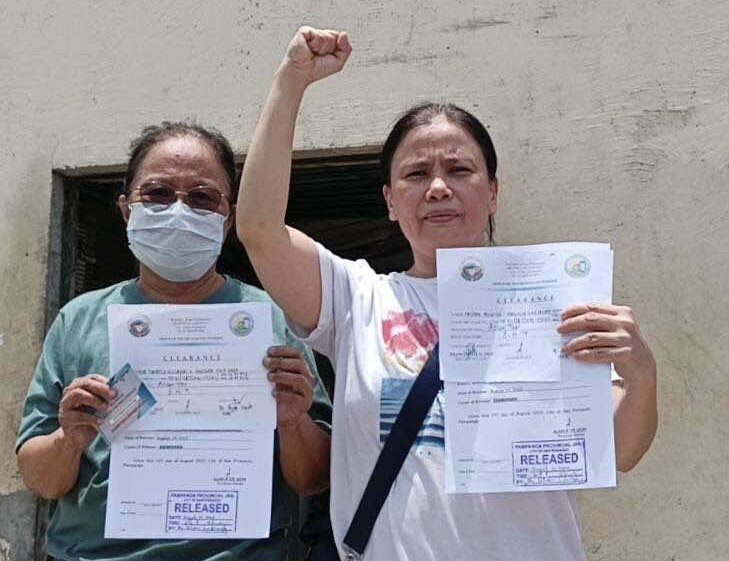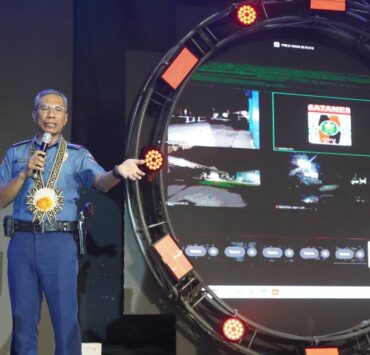2 activists acquitted in ‘Mexico 4’ case in Pampanga

CITY OF SAN FERNANDO—Former University of the Philippines student regent Desiree Jaranilla-Patun-og and peasant organizer Maria Theresa Buscayno walked free from the Pampanga Provincial Jail here on Thursday after a Regional Trial Court (RTC) dismissed charges of unlawful possession of firearms and explosives against them and two other colleagues.
The two women regained their freedom after a year in detention when Judge Rowena Rama-Chavez of the RTC Branch 47 here granted their counsel’s joint demurrer to evidence due to lack of proof.
In a 49-page order on Wednesday, Rama-Chavez ruled that the prosecution “failed to establish” that Buscayno, Patun-og, Oliver Millo, and Andres Ely owned or possessed the firearms and explosives allegedly seized from them during their arrest in Mexico town, Pampanga, on July 29, 2024.
However, Millo and Ely remained in jail due to pending nonbailable cases in Nueva Ecija and Zambales, according to Cristina Palabay, secretary general of human rights group Karapatan.
The four activists are collectively known as the “Mexico 4.”
‘Nagging doubt’
Karapatan and Samahan ng mga Ex-Detainee Laban sa Detensyon at Aresto (Selda) described the charges against the four activists as “trumped up.”
“The recordings taken from the body-worn camera do not depict the entire operation, particularly the flag down, actual arrest, and alleged discovery and confiscation of seized items,” the order stated.
It added: “Thus, a nagging doubt exists whether the subject firearms and explosives were indeed found in and seized from the accused’s possession.”
The order also noted that the prosecution failed to prove the accused lacked licenses to own or possess firearms or explosives.
According to the judge, there were inconsistencies in witness statements and procedural lapses in the marking and inventory of the items.
“Absolute guarantee of guilt is not demanded by the law to convict a person of a criminal charge, but there must, at least, be moral certainty on each element essential to constitute the offense and on the responsibility of the offender,” the order stated.
It added: “Proof beyond reasonable doubt is meant to be that, all things given, the mind of the judge can rest at ease concerning its verdict,” Rama-Chavez wrote, citing a judgment.”
For Palabay, “This old and worn-out modus of staging a crime scene and planting evidence is not new, especially during checkpoints and raids on the houses and offices of activists. Even with the use of body-worn cameras during arrest and search, as mandated by the Supreme Court, the authorities still managed to plant evidence.”
She added: “The case of the Mexico 4 is emblematic of the Marcos regime’s policy and practice of planting evidence and concocting fabricated testimonies to arbitrarily arrest and imprison community organizers who they label as terrorists. The majority of the 737 political prisoners are in jail due to similar practices.”

















